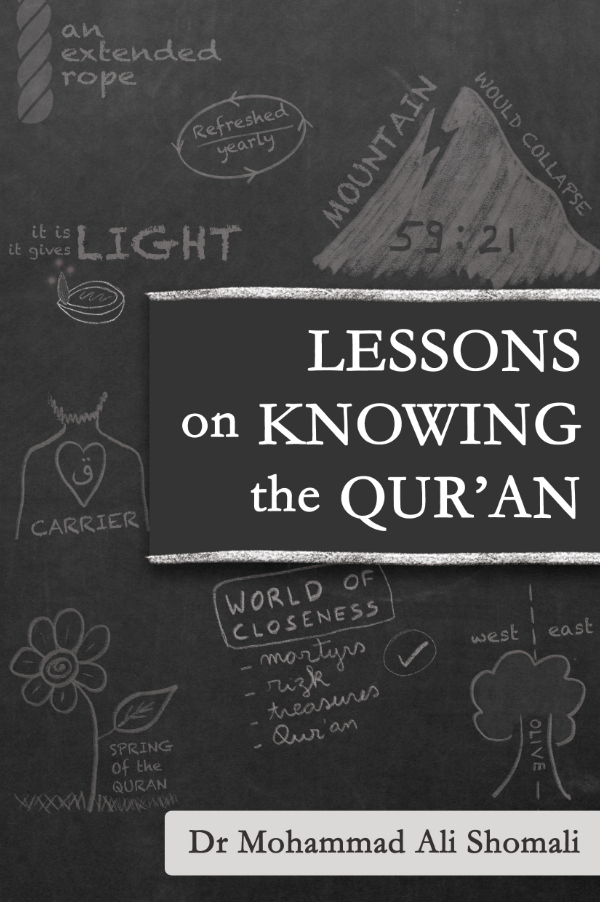Mohammad Ali Shomali, Lessons on Knowing the Quran, n. p.: Risalat International Institute, and Centre for Cultural and Ethical Studies, 2020. 423 pp.
The Holy Quran is the topmost and unanimously scripture of the Islamic religion. Although many, many introductory books have been written on the Holy Quran, there are still many untold aspects of it. This is no strange, for it is the intact Divine scripture, hence above all other books.
Arranged in four parts, the first part is concerned with the Divine revelation and its characteristics. Its first chapter attempts to provide definitions and types of revelation. An interesting feature of this book is that its arguments are based on the Quranic evidence which are quoted in Classical Arabic, and followed by English translation.

The second and third chapters focus on significant aspects of the Prophetic revelation and the light of the revelation in the Divine scriptures. As understood from its arguments, it is the Divine element in the scriptures that makes them outstanding and capable of withstanding the test of time.
The second part focuses on the Quranic revelation. Comprised of Chapters 4 to 10, they provide instructions on the descent of the Quran, the special status of the month Ramadan and the Eves of al-Qadr (the Eves of Divine Determination), the actual Divine words, the compilation of the Quran, the transparency of the Quran, and the centuries-long trends of Quran exegeses, tafsirs.
The third part turns to the status and reality of the Quran. Divided into four chapters, it deals with the significance of the Quran in hadith, the reality of the Quran, the status of the Quran in the Quran itself, and the Quran as a living scripture for all ages. It is the last topic that makes a clear distinction between the Quran and other books. Although revealed over fifteen centuries ago, it is always as living and fresh as it was in the time of the Prophet. Divided into Chapters 15-18, it sheds light on how to approach the Holy Quran. It attempts to show how should our responses to the Quran be. This is because the Quran is the living Divine book, hence capable of guiding its enquirers. As the Divine book when recited in a prescribed manner, it leaves its tremendous effects on the soul and mind of its audience and listeners, it does have several etiquettes to be observed for recitation, both in private or in public. The last chapter takes the reader to the stages of contemplating on the Quran.
The seven-page bibliography guides the reader to the sources consulted or quoted from. A great majority of the books catalogued in Arabic.
Dr. Muhammad-Reza Fakhr-Rohani
University of Qum
Iran
